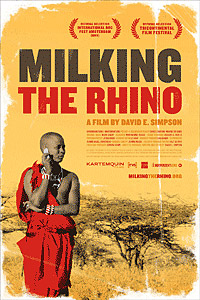
The Gambia, officially the Republic of The Gambia, is a country in West Africa. It is the smallest country within mainland Africa and is surrounded by Senegal, except for its western coast on the Atlantic Ocean. The Gambia is situated on both sides of the lower reaches of the Gambia River, the nation's namesake, which flows through the centre of the Gambia and empties into the Atlantic Ocean. It has an area of 10,689 square kilometres (4,127 sq mi) with a population of 1,857,181 as of the April 2013 census. Banjul is the Gambian capital and the country's largest metropolitan area. The largest cities are Serekunda and Brikama.

The economy of the Gambia is heavily reliant on agriculture. The Gambia has no important mineral or other natural resources, and has a limited agricultural base. About 75% of the population depends on crops and livestock for its livelihood. Small-scale manufacturing activity features the processing of peanuts, fish, and animal hides.

Bakau is a town on the Atlantic coast of Gambia, west of Gambia's capital city of Banjul. It is known for its botanical gardens, its crocodile pool Bakau Kachikally and for the beaches at Cape Point. Bakau is the first major suburb outside Banjul and the most developed town in the Gambia. Close to Bakau and Banjul is Gambia's largest city, Serekunda.

The Gambia Football Federation (GFF), formerly known as the Gambia Football Association, is the governing body of football in Gambia. It was founded in 1952, and affiliated to FIFA in 1968 and to CAF in 1966. It organizes the GFA League First Division, the GFA League Second Division and the national team. The current president is Lamin Kaba Bajo since September 2014.

The Gambian pouched rat, also known commonly as the African giant pouched rat, is a species of nocturnal pouched rat of the giant pouched rat genus Cricetomys, in the family Nesomyidae. The species is among the largest muroids in the world, growing up to about 0.9 m (3 ft) long, including the tail, which makes up half of its total length. It is widespread in sub-Saharan Africa, ranging geographically from Senegal to Kenya and from Angola to Mozambique and in altitude from sea level to 2,000 m (6,600 ft).

The following outline is provided as an overview of and topical guide to the Gambia:
The tourism industry today in the Gambia started when a party of 300 Swedish tourists arrived in 1965. That pioneering trip was organised by a Swede named Bertil Harding together with the tour operators Vingresor. It was seen as an ideal place to escape the harsh winter months of Scandinavia where Europeans would enjoy not only sun, sand and beaches but also experience the excitement of a real African holiday. It also offered a new opening for an affordable holiday to increasing numbers of traveling Europeans.
The Niominka people are an ethnic group in Senegal living on the islands of the Saloum River delta. They are currently classified as a subgroup of the Serer.
Genealogy tourism, sometimes called roots tourism, is a segment of the tourism market consisting of tourists who have ancestral connections to their holiday destination. These genealogy tourists travel to the land of their ancestors to reconnect with their past and "walk in the footsteps of their forefathers".

Milking the Rhino is a 2009 documentary film, produced by Kartemquin Films, that examines the relationship between the indigenous African wildlife, the villagers who live amongst this wildlife and conservationists who look to keep tourism dollars coming in. Both the Maasai of Kenya and the Ovahimba of Namibia have spent centuries as cattle farmers. With their lands being turned into protected game reserves, these ancient tribes have turned to tourism as a means of survival.

This is a survey of the postage stamps and postal history of the Gambia.
The Gambia Radio & Television Service is the national broadcaster of the West African state of the Gambia. Gambia Radio & Television Service currently broadcasts in English and native local languages.

Visitors to the Gambia must obtain a visa from one of the Gambian diplomatic missions unless they come from one of the visa exempt countries.
Prostitution in the Gambia is widespread but illegal. Most of the estimated 3,100 prostitutes in the Gambia are from Sierra Leone, Liberia, and Guinea. Prostitution takes place on the beach, in bars and hotels on the coast. Away from the coast, prostitution mainly takes place in bars. The bars are frequently raided and the foreign prostitutes deported. They often return within a few days.
The COVID-19 pandemic in The Gambia is part of the worldwide pandemic of coronavirus disease 2019 caused by severe acute respiratory syndrome coronavirus 2. The virus was confirmed to have reached The Gambia in March 2020.
Gambia: Take Me to Learn My Roots, is a 2019 British–Gambian documentary film directed by Bacary Bax and produced by Bud Sugar. The film deals with mission of a single mother to teach her mixed-race sons about their West African roots.
Beyond: An African Surf Documentary, is a 2017 Gambian documentary adventure sports film directed by Mario Hainzl and co-produced by Andreas Jaritz, Tommy Pridnig, Peter Wirthensohn, and Valentin Renoldner. The film deals in detail about the five local youth: Sam Bleakely, Yassinem, Meryem, Max and Omar, who are along the coast of Morocco, Western Sahara, Mauritania, Senegal and Gambia and their surfing lives.
Welcome to the Smiling Coast: Living in the Gambian Ghetto, is a 2016 Holland-Gambian documentary film directed by Bas Ackermann and produced by Emiel Martens. The film revolves around 15 Gambian youngsters working in the Gambian tourism industry of sun, safari and sex where their daily struggles against the informal economy.







